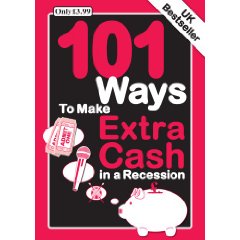Sometimes known as a “Company Will”, a Director Share Purchase Protection (DSP) scheme is a means by which all parties involved in the running and ownership of a private limited company (ltd) can ensure that the correct course of action is taken in the event of the death of a shareholding Director.
What happens if no plan is put in place?
Unless provision is made for the death of a shareholding Director in the Articles and Memorandums of Association (Mems and Arts) it is normal for a deceased Director’s shares in a private limited company to pass, under the terms of their Will, to their beneficiaries. This could be to a spouse or even to their children below the age of majority.
This would entitle the new “shareholder” (widow(er)!) to not only have a say in the running of the company but also a share of the profits in proportion to their shareholding.
Naturally, this may not be the most appropriate arrangement for any of the parties involved.
What does each party want?
Typically we would expect the remaining shareholders to wish to retain total control over the business in terms of running the business and the distribution of profits in the form of dividends.
Likewise, we would also expect the widow(er) to expect to receive a cash lump sum or an income, to replace that income lost by the death of their spouse.
How can this be achieved?
The normal method for solving this problem is for each shareholding Director to effect a life assurance policy, with the sum assured set at the value of their shareholding in the company – normally the company’s accountants would be involved in assessing and calculating the current value of the business and each shareholding Director would effect a life assurance policy in relation to their proportional ownership of the company.
This would generally by a term assurance plan, although a whole of life plan could be used in certain circumstances.
These life plans would normally be written under a “business trust” with the other Directors acting as trustees.
In addition to this, each individual would also effect a “double option agreement” – this gives the following options: –
1. The widow(er) has the option to sell to the remaining shareholding Directors – if she/he exercises this option the other parties are obliged to act.
2. The shareholding Directors have the option to buy if they wish – is they exercise this option, the widow(er) is obliged to act.
This is why it is known as a “double option” agreement – there are options available to both parties – the main point being that should one with to exercise the option to buy or sell then the other party is obliged to also take part.
Why an “option”?
It has to be an option, and not a pre-agreed sale, in order for the widow(er) to benefit from Business Property Relief on death.
What can be the problems associated with not having a DSP arrangement in place?
These are numerous, but the main ones concern the loss of control to the remaining Directors – would they really want the deceased Directors widow(er) having a say and control in the running of the business – especially if they have no experience of the company or the business market in which it operates – they may wish to take profits as dividends (especially if they have no other source of income!) whereas the remaining Directors may wish to retain profits for reinvestment in the business. The widow(er) could also veto any business plan – making life difficult for all parties involved.
Conclusion
If you are a shareholding Director it is strongly recommended that you discuss the issue of the death of one of the shareholders on the business with each other and with your professional advisers.
The cost of NOT taking action could far outweigh the cost of implementing a Director Shareholders Protection Plan.
In basic terms, would you want to go into business with your co-Directors other half??!!

